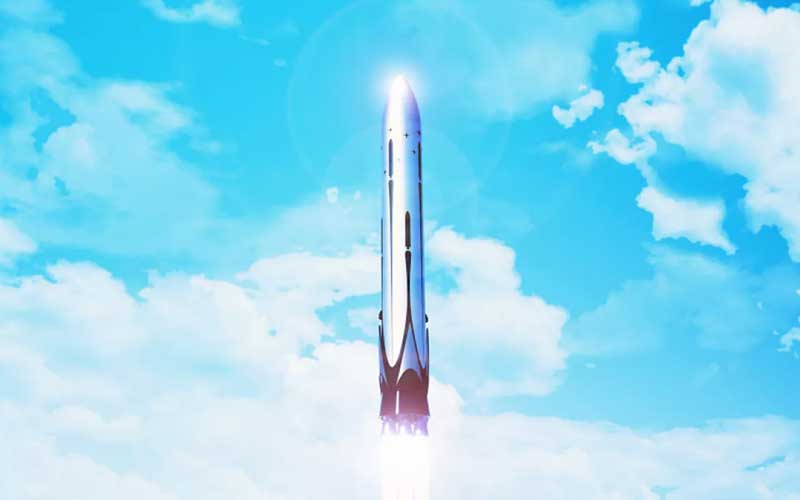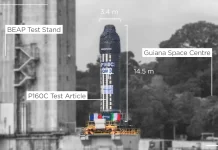
The European Space Agency has announced that it has awarded two new contracts to ArianeGroup to build a second Themis demonstrator and to refine the design of its Prometheus rocket engine. The two contracts have a combined value of €230 million.
Themis was initially introduced as a CNES project in 2018 and was then adopted by ESA member states at the 2019 ministerial council meeting in Seville. However, in June 2017, ArianeGroup received an initial €75 million in funding to develop Prometheus, the engine that would be proposed to power the Themis demonstrator. ESA awarded the first Themis contract, valued at €33 million, to ArianeGroup in December 2020. In May 2021, the agency provided an additional €135 million to ArianeGroup for the development of additional Prometheus engine demonstrators. In July 2022, the European Commission added €56.4 million in funding to the project.
In a 21 November press release, ESA announced that it had allocated an additional €230 million to the project. According to the agency, the funding will enable the development of a second Themis demonstrator, an upgraded Prometheus engine, and the renovation of testing and ground infrastructure.
“The contract extensions signed today at ESA’s headquarters in Paris, France, are to further demonstrate and test evolutions of the Prometheus engine and the Themis demonstrator with higher and more hop-tests,” explained an ESA statement.
The Themis T1E (Themis One-Engine Evolution) will feature upgraded structures and propellant tanks. This will, according to the agency, allow it to fly higher and for longer periods. Medium altitude hop tests of the T1E Themis demonstrator will occur at Esrange Space Centre in Sweden.
Work on Prometheus will be focused on enabling the low-cost industrial manufacture of the engine. It will also focus on engine maintenance and reusability. To enable the long-duration hot fire tests necessary for these operations, part of the funding will be used to adapt the PF50 test stand in Vernon, which was previously been used to test Ariane Vulcain engines.
In parallel to the new vehicle manufacturing and Prometheus refinements, ArianeGroup will design and test “technologies needed for stage recovery such as grid-fin aerodynamic stabilizers.”
The inaugural flight of the first Themis demonstrator is expected to be launched in 2025.
Commercial application for ArianeGroup
The additional funding allocated to ArianeGroup will not only go towards the development of ESA’s Themis demonstrator but also to that of Maia, a rocket being developed by MaiaSpace, a 100% ArianeGroup-owned subsidiary. Maia is a partially reusable rocket that will make use of the Themis demonstrator’s architecture for its first stage, which includes the use of Prometheus engines.
As a result, although this investment is merely a stepping stone in the development of an institutional reusable rocket for Europe, it will directly contribute to the future commercial success of MaiaSpace.




